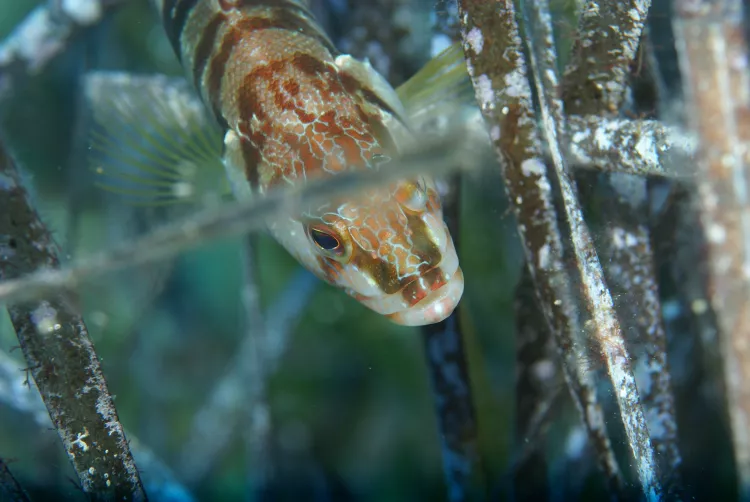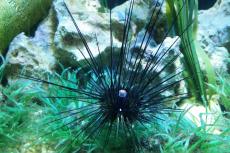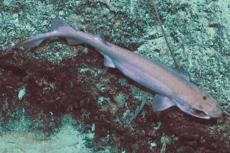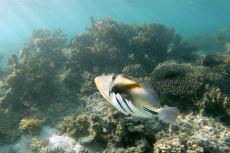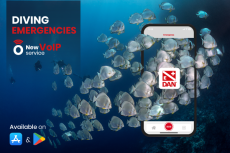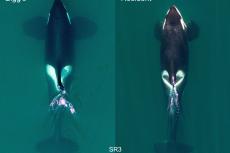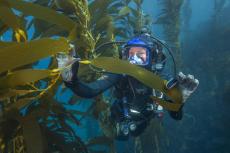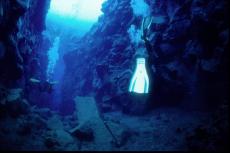Fish get emotional too
Have you ever heard of a fish being undecided? Or thought of them as having emotions? Perhaps not. Well, now it turns out that fish, like humans, process information—and perhaps emotions—on different sides of the brain.
Now, additional findings lends further credence to the notion that fish do indeed possess emotions and harbour thought processes. It turns out that fish growing up in the wild among predators use their left eye to look at novel objects, while their offspring raised in captivity use the right eye.
Culum Brown, now at Macquarie University in Sydney, Australia and his team caught bishop fish (Brachyraphis episcopi) from areas with high and low predation rates in Panama. The team bred the fish in the lab and then tested the behaviour of both the wild parents and their offspring.
Fish swam towards a slatted barrier through which they could see either a novel object (a yellow cross), nothing or another bishop fish. They could then swim past the barrier either to the left or to the right. Exiting to the left meant the fish had kept its right eye on the barrier, and vice versa.
Neither fish from areas of low predation nor their young showed much of a preference for a left or right exit, suggesting their brains were not very lateralised. However, fish that had to deal with a lot of predators in the wild favoured one eye, as did their lab-born offspring.
This clearly suggests that life experiences can affect which side of the brain fish use and even that they have emotional mindsets, since different sides of the brain may correspond to a curious or suspicious attitude.
Brain lateralisation has been found in an increasing number of other species in recent years. Humans use their left and right brain lobes differently, the most well-known consequence being handedness. ■
Especially for animals that have to cope with many predators, it is an advantage if they can use one hemisphere to keep an eye on predators while they use the other hemisphere to do other things.
—Culum Brown


